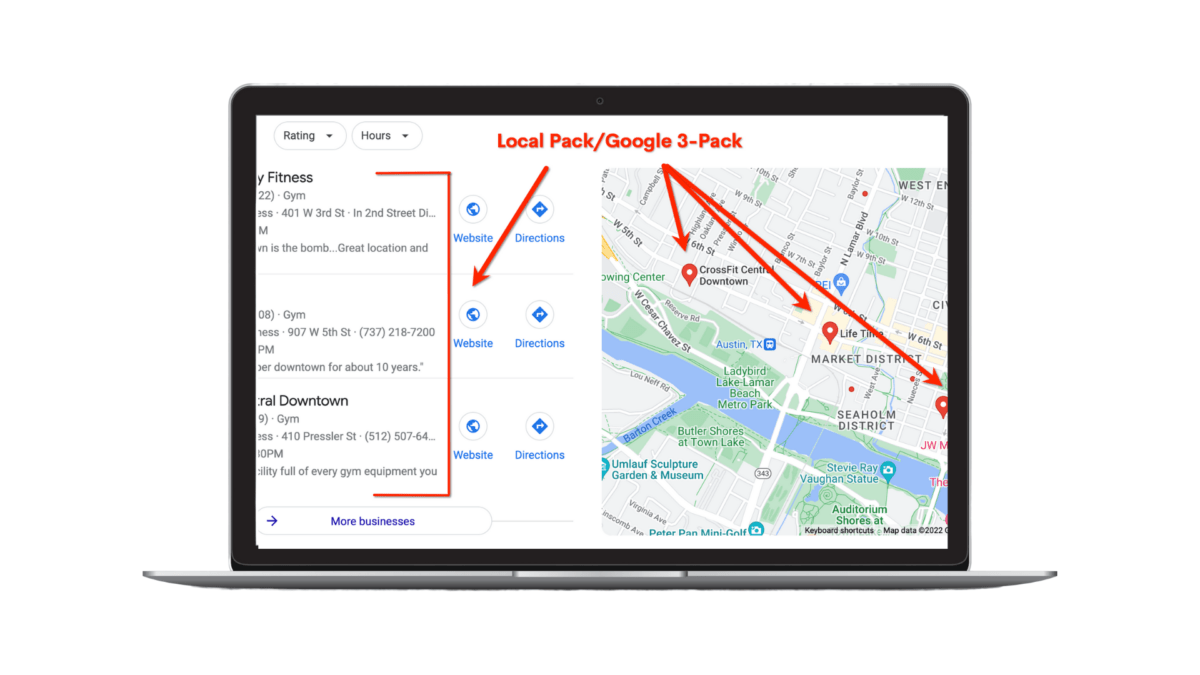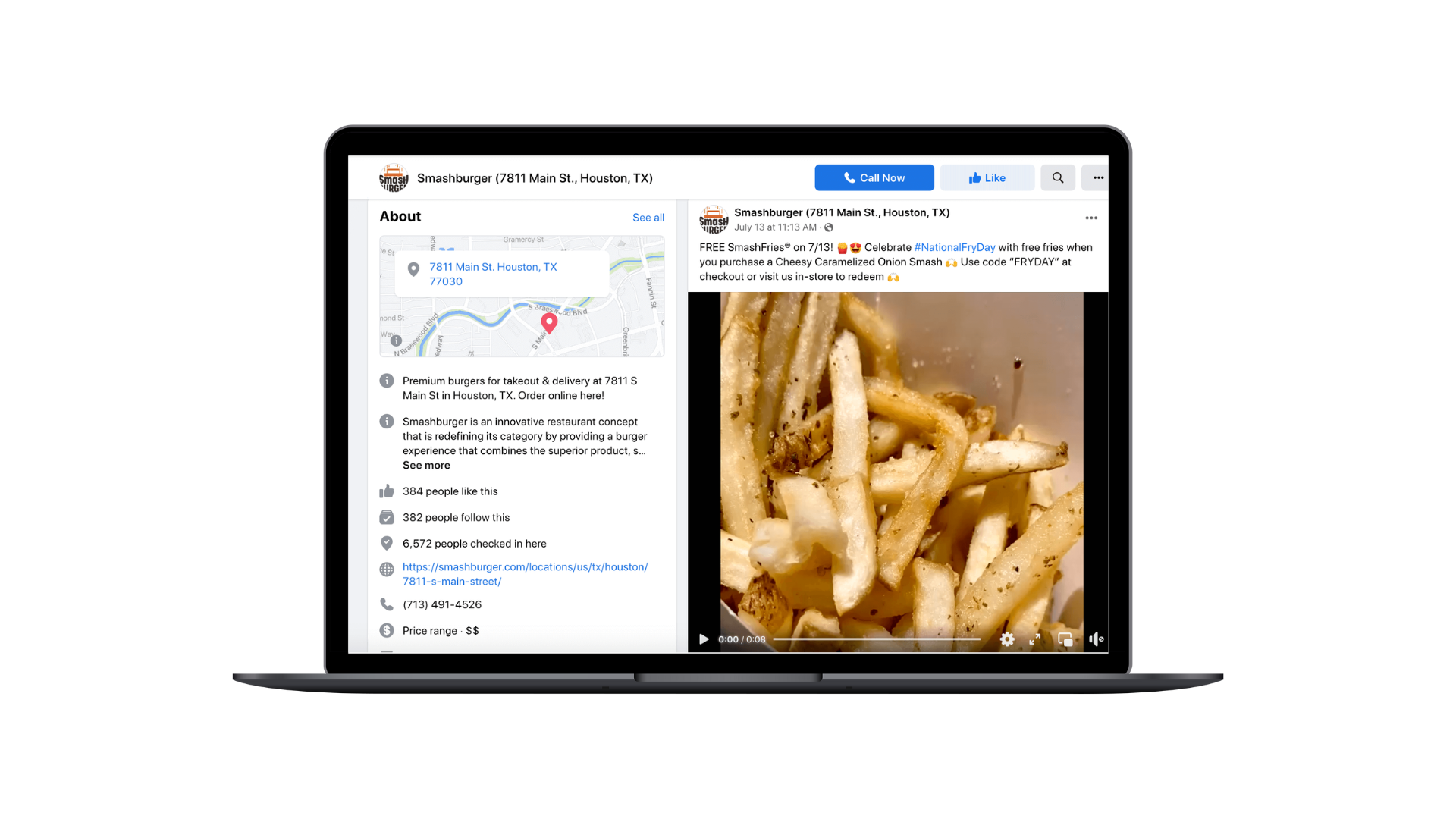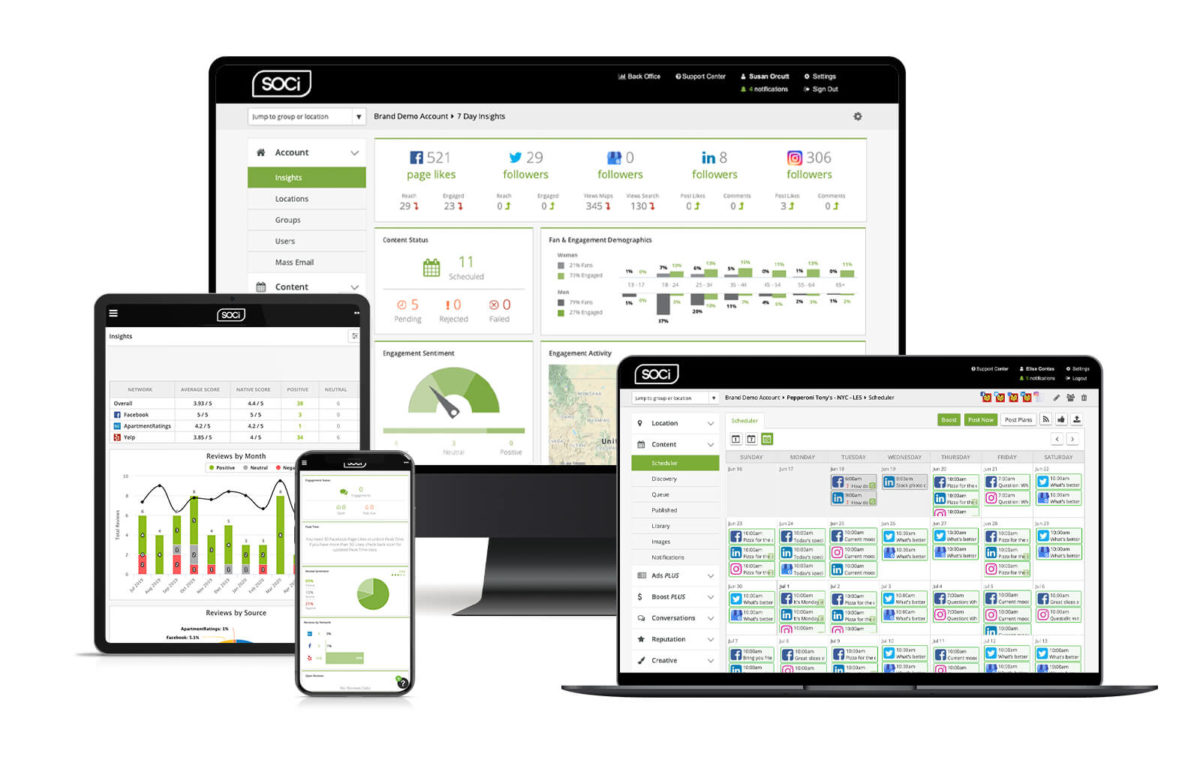Everything You Need to Know About Search Engine Reputation Management (SERM)
Everything You Need to Know About Search Engine Reputation Management (SERM)
Search engine optimization (SEO) and online reputation management (ORM) frequently affect each other. As a multi-location marketer, it’s wise to monitor and manage both simultaneously. When these two marketing tactics overlap, it’s called search engine reputation management (SERM).
Consumers often research corporations on search engines like Google. According to one report, 65 percent of consumers trust online search engines when researching a business. However, 75 percent of people never scroll past page one of the search engine result page (SERP).
As you can see, it matters how and where you appear on search engines. Think about it, would you trust a business that has negative reviews or bad publicity? Likely not. Similarly, if you’re not prominent enough in search results, a consumer may not even see your business, regardless of your positive reputation.
SERM can help you manage how you appear on search engines and can improve your online reputation. In this blog, we’ll explain how to improve your SERM. Let’s get started!
Bolster Your Online Reputation Management
ORM is the strategic process of monitoring and influencing your business and brand’s online presence.
Today, 97 percent of people search online to find a local business. When these consumers research your business, they’re often looking for reviews. Eight-two percent of consumers overall read online reviews. These reviews heavily impact your brand’s reputation.
You want these searchers to find positive reviews and endorsements; negative reviews often turn away potential customers. Therefore, a significant aspect of ORM is review management and response on review sites, social media, and local listings.
ORM and review response are particularly challenging for multi-location businesses since they must manage reviews across all their business locations and individual listings. There are solutions that can help your business easily manage its reviews across locations, but we’ll dive into that later in this blog!
Here are a few tips for managing your online reviews:
- Respond to the most recent reviews first, prioritizing negatives ones
- Have detailed guidelines for responding to reviews
- Vary your responses so they’re personalized and more genuine
- Report fake or inflammatory reviews
- Take sensitive reviews and discussions offline
- Treat review response as an everyday activity
For more details on review response and ORM, download our Multi-Location Marketer’s Guide to Online Reputation Management.
Improve SEO and Clean Up the SERP
Google and other search engines use complex formulas to determine who ranks on page one of the SERP for a specific query. That said, with high-quality and well-optimized content, you can influence what appears in the search results when consumers research your business or enter relevant queries where you might populate.
Let’s first discuss how to clean up the SERP and use it to your advantage. Then, we’ll dive into tips to improve both your on-page and local SEO.
Cleaning and Controlling the SERP
Cleaning the SERP means your business is strategically producing content that will help your business rank higher on search. This content also includes positive information about your business.
ORM and responding to reviews inherently cleanse the SERP because consumers will notice your customer service and care. Other SERP cleansing tactics include:
- Actively create and publish content that can rank on page one
- Blog posts, data studies, surveys, videos, and images
- Acquire positive media attention and coverage
- Gain backlinks to your content or site through PR efforts and guest posts
- Have well-designed and easy-to-navigate web and landing pages.
Not everything you create will rank on page one. However, you only need a few high-quality pieces to rank on page one to make an impact. Note that cleaning up the SERP is an ongoing process and can’t be a one-and-done activity, or you’ll lose rankings.
Improving SEO
Part of cleansing the SERP involves improving your SEO. Broadly speaking, search engines consider content based on relevancy and E-E-A-T (experience, expertise, authority, and trustworthiness).
For instance, if you’re a restaurant brand, you likely won’t rank for a blog post on mortgage rates. However, you’d be more likely to rank for a piece on ways to obtain and retain servers.
To improve SEO, you also want to optimize your content for search engines. Note, there are two types of SEO, on-page and off-page. You can control on-page SEO more so than off-page SEO. However, the content you create can affect off-page SEO. For a detailed explanation of both SEOs, read our blog on local SEO ranking factors.
You can optimize for any blog post or landing page’s on-page SEO by implementing and improving your:
- Meta description
- Alt text
- Schema markup
- Title and header tags
- Page speed
- Internal and external links
Local SERP and SEO
Controlling the SERP and making on-page SEO adjustments also affect your local search or local SEO. For example, if a searcher adds “near me” to their query, that’ll produce results of local businesses around them. If your local listings and website are well-optimized, they’re more likely to appear in the Google 3-Pack or on page one of the SERP.
Search engines are starting to give users more local results. Some queries, such as searching for “gyms,” will automatically show the Google 3-Pack and other local gyms around the searchers’ area — as seen in the image below.

Google and other search engines often know people are looking for local results even without a local modifier like “near me.” In fact, in 2016 and 2017, searches for local places without the qualifier “near me” grew 150 percent faster than similar searches that did include “near me.”
Forty-six percent of all Google searches are linked to something local. Because search engines and consumers are focused on local search, it’s imperative that your multi-location business address and optimize local SEO.
You can apply the previously mentioned SEO tactics to local SEO as well. For more information on improving your local SEO, read our blog post on how to conduct a local SEO audit. You can also download our guide, the Top 10 Things You Should Be Doing In Local SEO Now.
Implement Social Listening
Social listening is the act of monitoring and analyzing conversations and trends around your business, brand, competitors, and the industry. These conversations or brand mentions occur on review sites, social media, online forums, and other corners of the internet.
Social listening helps with local SEO management, ORM, and ultimately SERM. Social listening allows you to proactively avoid PR crises and not allow minor incidents or issues to cause ripple effects, helping maintain a positive online reputation.
In terms of SEO, social listening allows you to:
- Find guest blogging and linking opportunities
- Discovered unlinked brand mentions and turn them into do-follow backlinks
- Continue to improve brand mentions and therefore awareness
Social listening also helps you gain insight into what your customers think and say about your business and competitors. This information is vital. These insights allow you to make more informed marketing, sales, customer service, and general business decisions. To commit to social listening effectively, you need a social listening tool — we’ll discuss this in more detail later.
Enhance Your Social Media
In general, social media doesn’t directly impact your SEO rankings or the SERP. However, the content you share across social media platforms increases brand exposure, mainly if they include links to your top-ranking pieces of content.
In 2017, Google’s Gary Illyes mentioned that “the context in which you engage online, and how people talk about you online, actually can impact what you rank for.” So, if you’re doing well on social media and people are talking positively about your brand, it influences your SEO and ranking ability.
Speaking of consumers discussing your brand, many consumers turn to social media to ask questions, share positive experiences, or raise complaints. Your social listening and ORM strategies should include addressing these comments and concerns across all major social networks, especially at the local level.
Just like local SEO affects your SERM, so does local social. Our research has found that localized content receives 12x the engagement rate than more general or “non-localized content.”
Therefore, if you’re a multi-location business or have local stores, we recommend creating local social profiles for each location. See an example of one of Smashburger’s local social profiles below.

You can download The Localized Social Content Guide for more detailed information on how to create local social profiles and insight into the most engaging content to publish on them.
Post Positive Content
Lastly, to improve your SERM, we recommend publishing positive and informative content that ranks well on the SERP. Search engines and consumers should view your brand and business positively.
One way to garner positive content, especially locally, is to encourage customers to leave more reviews. If consumers leave positive reviews, you can use them as user-generated content (UGC). These positive reviews not only help your local listings, such as your Google Business Profile (GBP) rank, but you can also publish them on your website, improving your brand’s reputation.
Below are other types of positive content you can publish online:
- Partnerships with clients, business partners, or nonprofits
- Employee spotlights
- Positive case studies
- Internal news or product updates
- Charitable giving or events your company’s participated in
Choosing The Right Tool to Manage Your Search Engine Reputation
As you can tell, many factors go into SERM, from managing reviews to bolstering your SEO, social media, and listening capabilities. Many find it challenging to manage, especially for businesses with 100s to 1,000s of locations.
The right software can help manage your search engine and online reputation and make things easier. SOCi can help!

SOCi Reviews and Listening can help you monitor reviews and brand mentions on most relevant review sites and social media platforms. Both products also have sentiment analysis capabilities.
SOCi Social allows you to publish and manage your social media efforts across 100s and 1,000s of locations. All of SOCi’s products are built for scale and allow for a well-balanced workflow at the national/corporate and local levels. For more information on how SOCi can provide you with the tools needed to dominate your SERM, request a demo today!








